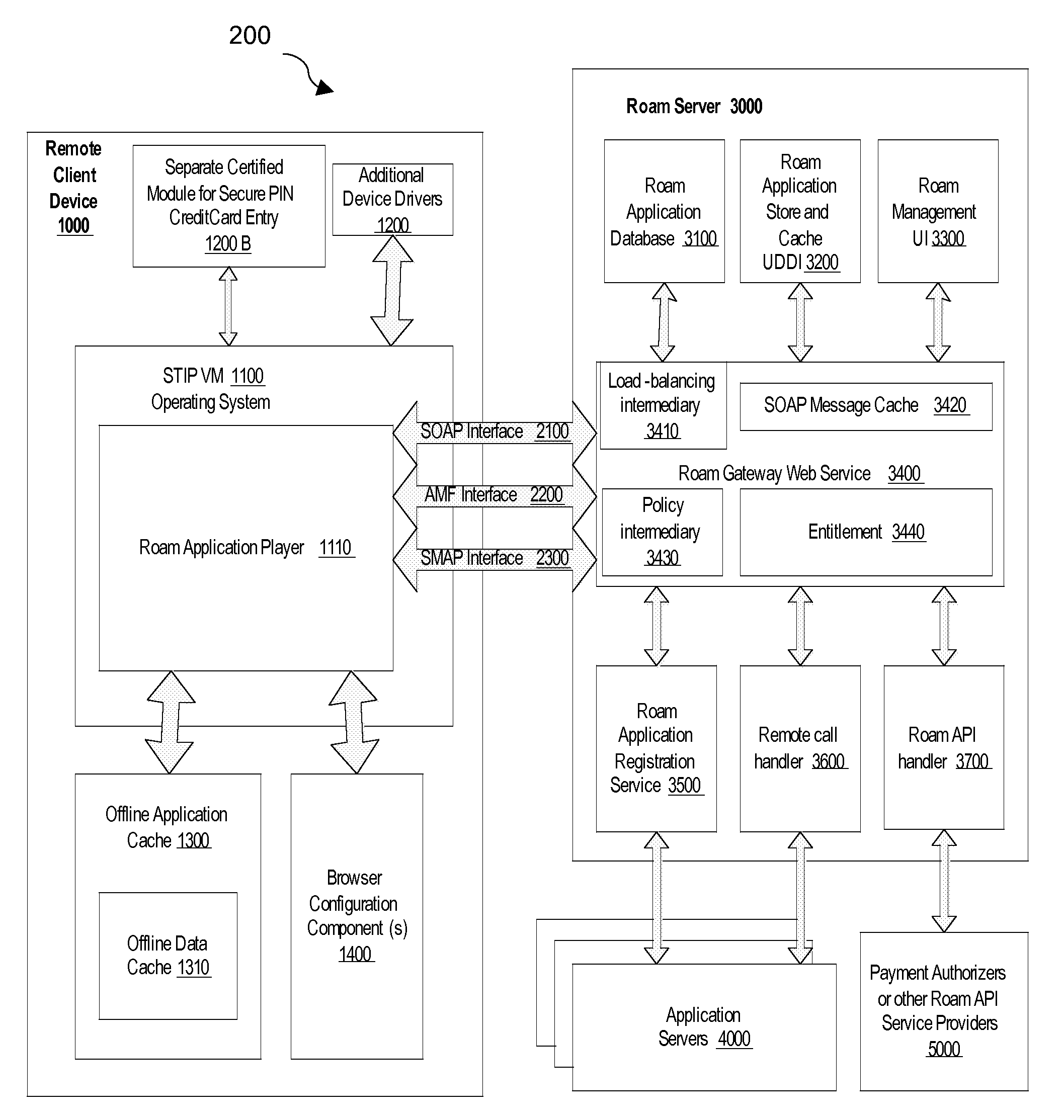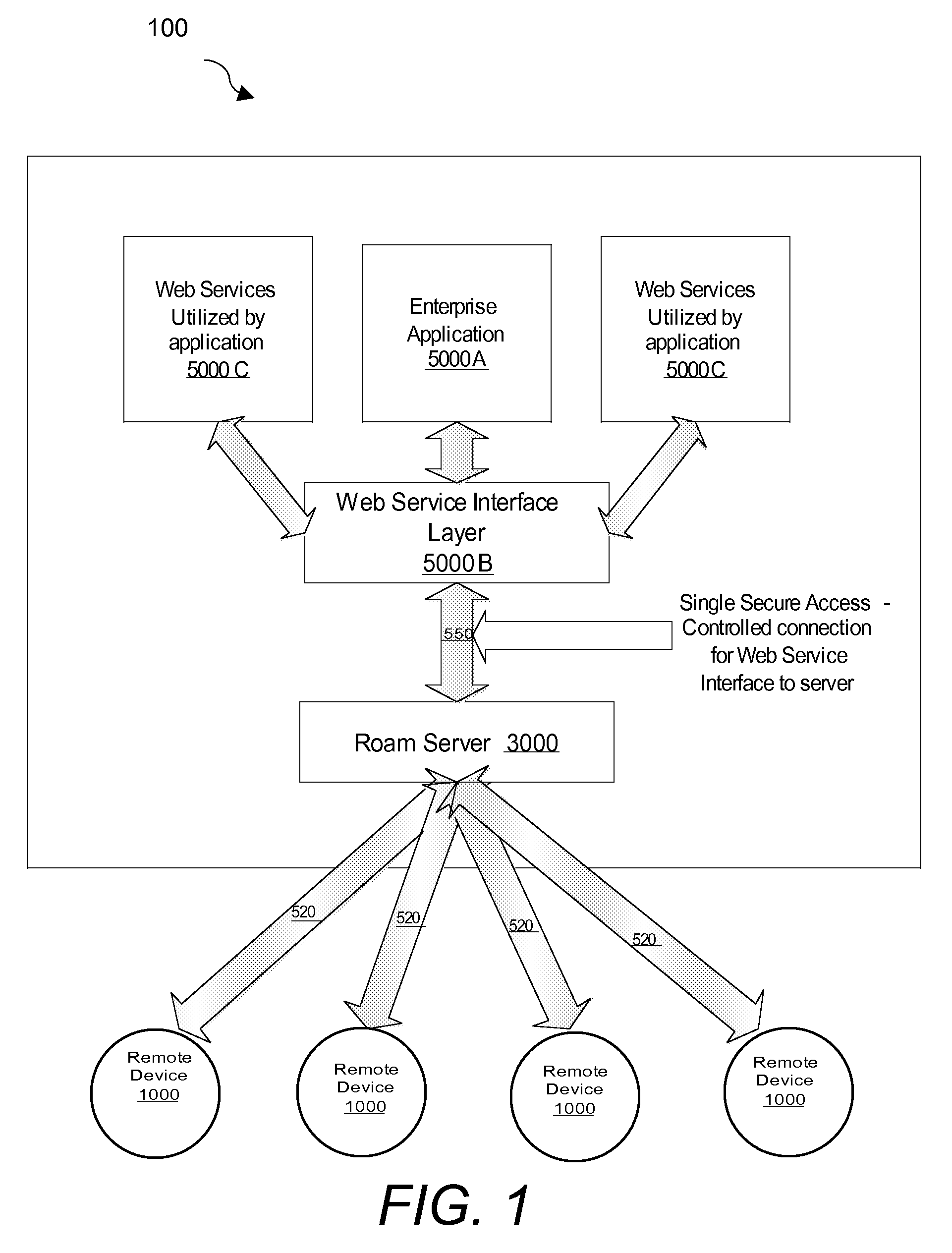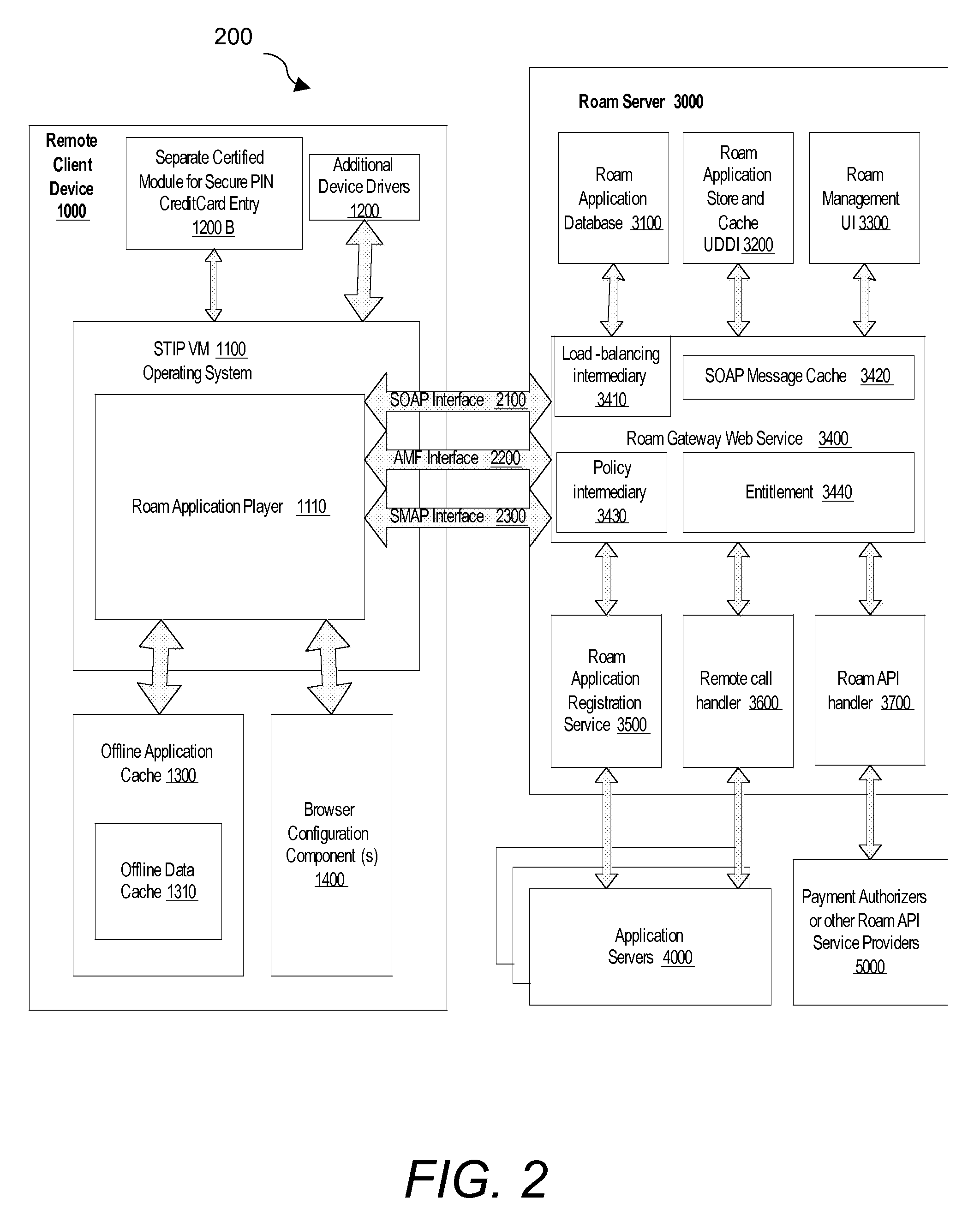System and method for playing rich internet applications in remote computing devices
a technology of rich internet applications and remote computing devices, applied in computing, digital computers, instruments, etc., can solve the problems of mobile remote devices being easily lost and/or stolen, mobile devices having extremely limited storage and processing capacity, and being often out of their coverage areas
- Summary
- Abstract
- Description
- Claims
- Application Information
AI Technical Summary
Benefits of technology
Problems solved by technology
Method used
Image
Examples
Embodiment Construction
[0026]In general, the invention provides a system for securely extending to a remote device RIAs that are actually powered by web services on a server. The system includes a certified player for playing rich internet applications on the remote computing devices. The player invokes server-side web services through a single, secure, certified server intermediary.
[0027]Referring to FIG. 1, system 100 comprises one or more client devices 1000 interacting with server 3000 via network connections 520. The server 3000 is in contact with an enterprise application 5000A via a web service interface layer 5000B. Server 3000 is also in contact with other web services 5000C utilized by the application via the web service interface layer 5000B. The web service interface layer 5000B is connected to the server 3000 via a single, secure, access controlled connection 550.
[0028]Client Device 1000 is usually a handheld remote communication device on which the application user interface is executed. Exa...
PUM
 Login to View More
Login to View More Abstract
Description
Claims
Application Information
 Login to View More
Login to View More - R&D
- Intellectual Property
- Life Sciences
- Materials
- Tech Scout
- Unparalleled Data Quality
- Higher Quality Content
- 60% Fewer Hallucinations
Browse by: Latest US Patents, China's latest patents, Technical Efficacy Thesaurus, Application Domain, Technology Topic, Popular Technical Reports.
© 2025 PatSnap. All rights reserved.Legal|Privacy policy|Modern Slavery Act Transparency Statement|Sitemap|About US| Contact US: help@patsnap.com



